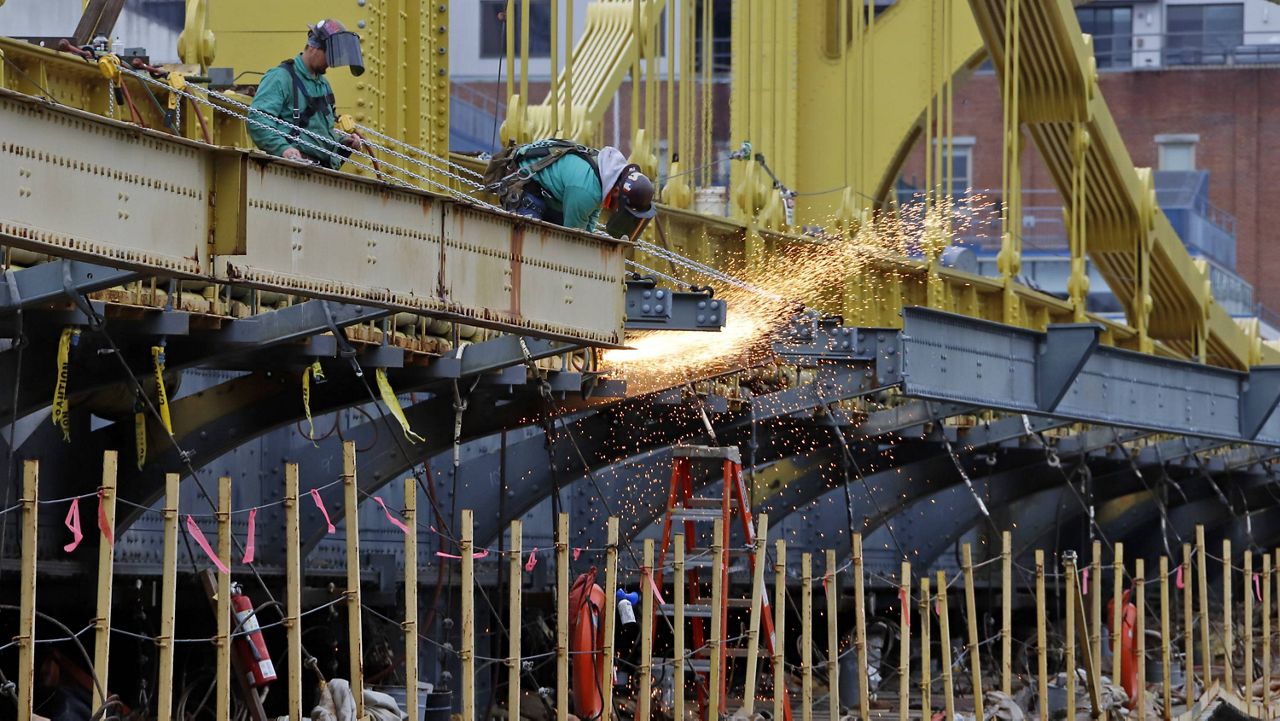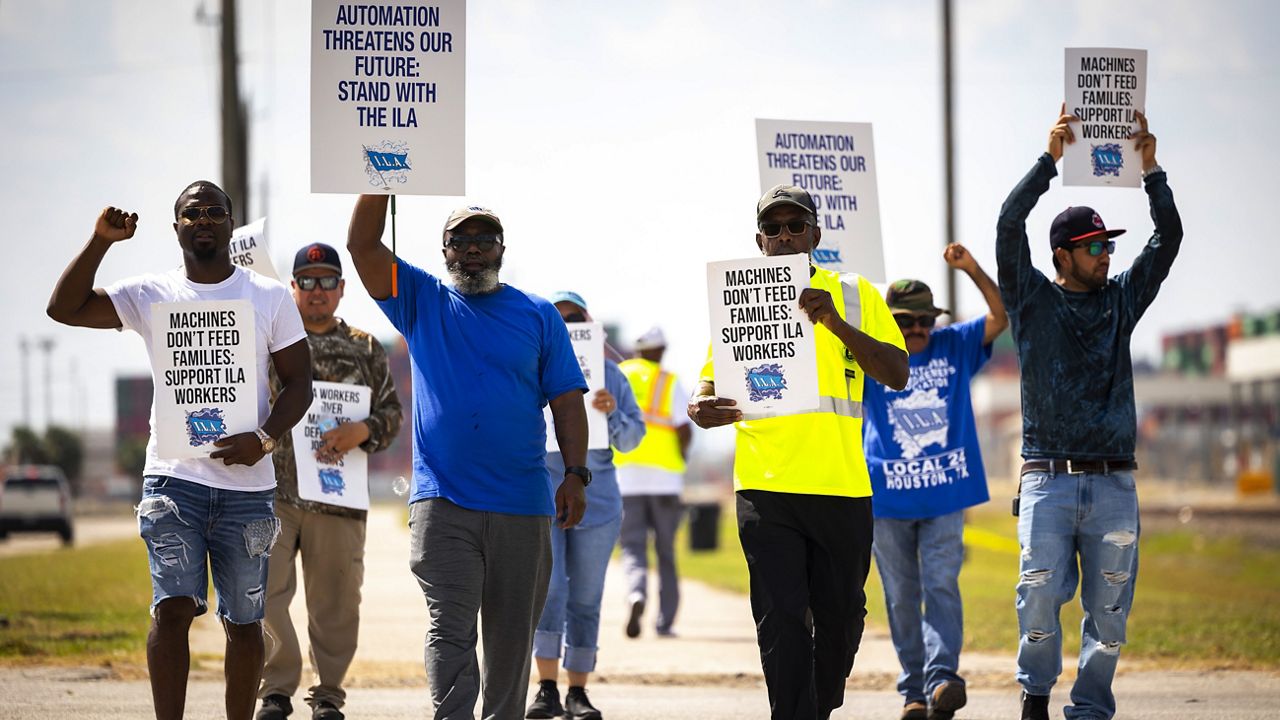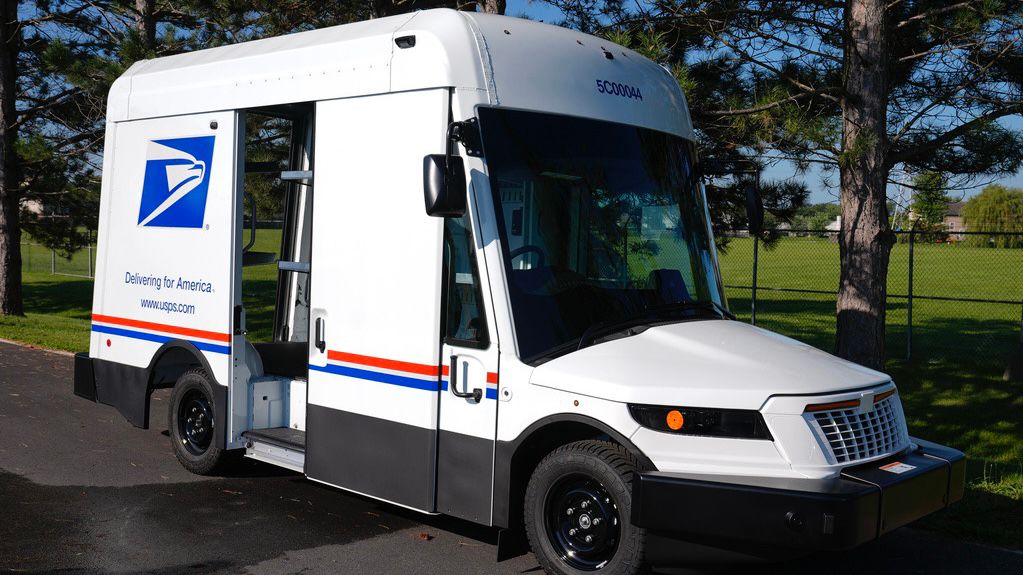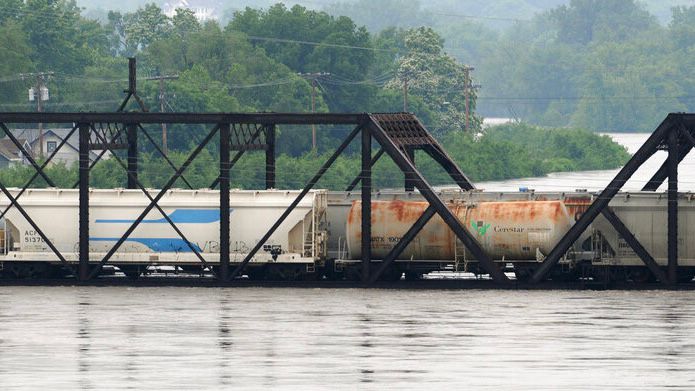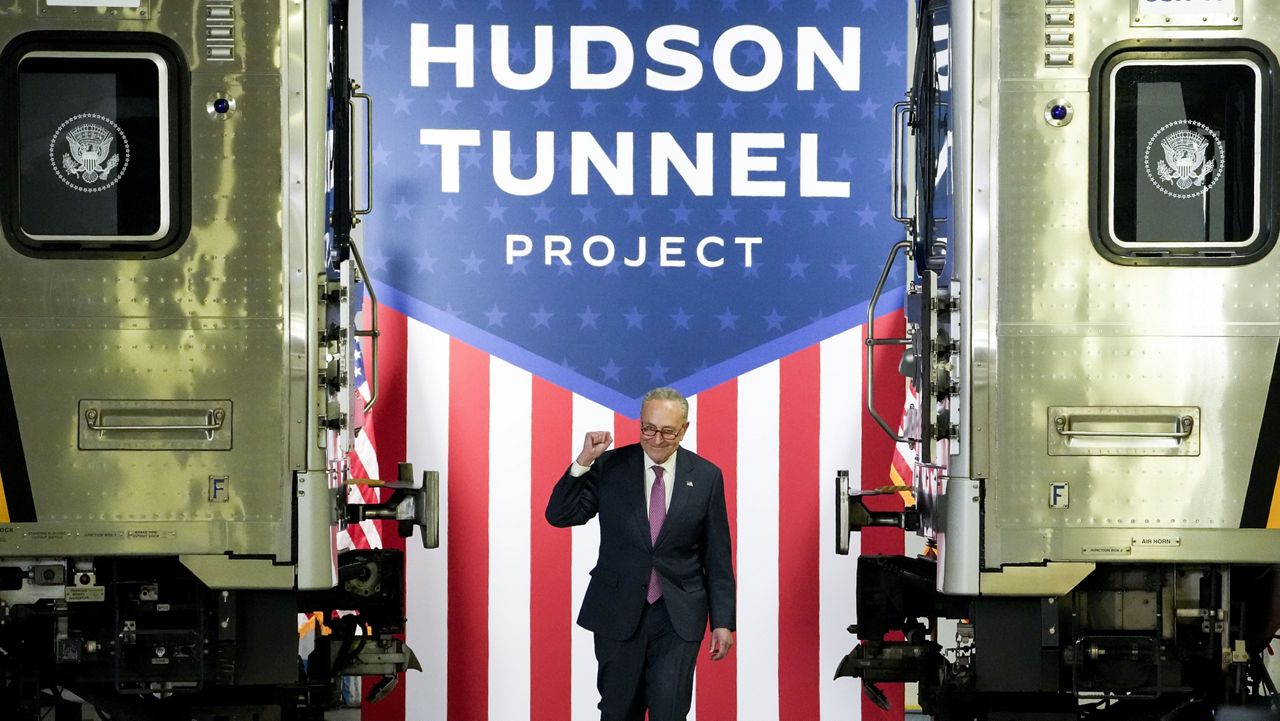With his $1.9 trillion COVID-19 relief package on the verge of passing, President Joe Biden will soon turn his attention to his next major legislative endeavor.
What You Need To Know
- It is widely believed that President Joe Biden's next major legislative endeavor will be focused on infrastructure
- During his campaign, Biden pledged to spend $2 trillion on infrastructure and clean energy
- Transportation Secretary Pete Buttigieg said in an interview with MSNBC that he thinks "this could be an infrastructure year, given the level of energy and enthusiasm that exists in the country"
- Sen. Joe Manchin (D-WV) says he’ll insist Republicans have a greater voice in Biden’s next major package
While the White House isn’t saying yet what that will be, it is widely believed the president will pursue the sort of ambitious infrastructure package that has eluded other recent administrations.
During his campaign, Biden pledged to spend $2 trillion on infrastructure and clean energy, but the White House has not ruled out the possibility of an even higher price tag.
Biden is eyeing a package that would create millions of jobs rebuilding roads, bridges, green spaces, water systems, power grids and universal broadband. The president is hoping the plan would help the U.S. remain competitive in the global economy, withstand the impacts of climate change and improve public health through clearner air and water.
His proposal could be unveiled before the end of the month.
“It’s a policy area that's close to the president's heart, one he's had a lot of interest in and commitment to even when he was vice president and before,” White House press secretary Jen Psaki said Monday.
While there has historically been a bipartisan appetite for a major infrastructure overhaul, there are also obstacles for the Biden administration.
One hurdle that must be cleared appears to be satisfying Sen. Joe Manchin of West Virginia, a centrist Democrat who wields significant power in the evenly divided Senate.
Manchin told Axios in an interview that aired on HBO this past weekend that he’ll insist Republicans have a greater voice in Biden’s next major package after the Senate passed his COVID-19 relief bill with no GOP support.
Manchin also said he won’t vote for an infrastructure plan using the budget reconciliation legislative process, which would only require a simple majority of Democratic support rather than 60 votes. And he said he will try to see to it that the bill is entirely paid for by tax increases.
The West Virginia Democrat said he’s concerned that continuing to significantly add to the national debt might spur “a tremendous deep recession that could lead into a depression if we're not careful.”
But many lawmakers are against raising the federal gas tax and business groups such as the Chamber of Commerce oppose hiking business taxes during the pandemic.
Republicans say they want to invest in infrastructure, but they appear to disagree with Biden’s focus on the environment and share Manchin's concerns about adding to the debt after the federal government has already borrowed heavily to combat the economic fallout from the pandemic. Their concern is that infrastructure would ultimately become a form of the Democratic-proposed “Green New Deal” that would move the country away from fossil fuels.
Missouri Rep. Sam Graves, the ranking Republican on the transportation committee, has set a series of markers for Biden to win bipartisan backing.
“First and foremost, a highway bill cannot grow into a multi-trillion dollar catch-all bill, or it will lose Republican support,” Graves said in a statement last week. “Second, a transportation bill needs to be a transportation bill that primarily focuses on fundamental transportation needs, such as roads and bridges. Republicans won’t support another Green New Deal disguising itself as a transportation bill.”
Biden has often spoken bout reaching across the aisle on major legislation, and he has hosted two infrastructure meetings at the White House with lawmakers from both parties. He initially sought bipartisan support on COVID-19 aid, too, but ultimately gave up on courting Republicans because their demands fell well short of the package he wanted.
Psaki said there should be more common ground on infrastructure.
“Infrastructure improvements are not a Democratic issue. They're not a moderate issue, a progressive issue, a conservative issue,” she said. “The American people want the roads, rails and bridges to be reformed. He feels there's a path forward.
“There's no bill that's being considered,” she added. “He's having discussions to hear ideas here, good ideas from members of both parties.”
After years of underfunding, America’s infrastructure is in need of upgrades, watchdog groups say. The country’s infrastructure received a C- grade from the American Society of Civil Engineers last week. The analysis looked at aspects such as roads, bridges, rails, aviation, energy, drinking water and waterways.
More than a third of U.S. bridges need repair or should be completely replaced, according to analysis of federal data by the American Road & Transportation Builders Association, an infrastructure investment advocacy group. And 43% of major U.S. roads are in poor or mediocre condition, according to the National Transportation Research Group.
Biden also has expressed concerns about falling behind other nations, particularly China, in infrastructure and transportation.
“If we don’t get moving, they’re going to eat our lunch,” Biden said of China last month. “They have major, major new initiatives on rail. They already have rail that goes 225 mph with ease. They’re working very hard to do, I think, what we’re going to have to do. And I think the automobile industry is already there, and so is labor.”
Meanwhile, the recent widespread power outages winter storms in Texas have bolstered the Biden administration’s argument that infrastructure must be upgraded to stand up to climate change.
“Climate change is real, and it’s happening now, and we’re not adequately prepared for it,” Liz Sherwood-Randall, Biden’s homeland security adviser, said during a White House press briefing last month.
Former President Donald Trump’s work on infrastructure could be described as much talk but no action — so much so that his fruitless “Infrastructure Weeks” became a recurring punchline in D.C. circles.
In February 2018, Trump unveiled a $1.5 trillion spending plan on infrastructure for the following decade that largely leaned on private sector spending, but Congress never voted on it.
In 2019, Trump and Democrats agreed to a $2 trillion infrastructure plan, but he never proposed how to pay for the upgrades and then stormed out of talks while demanding House Democrats stop investigating him.
Last year, the Trump administration reportedly drafted a $1 trillion infrastructure plan but never released it. The Democrats passed a $1.5 trillion package in the House in 2020, but it went nowhere with the Trump administration and the Republican-led Senate.
“We've got to make sure it's different this time,” Transportation Secretary Pete Buttigieg told MSNBC on Monday. “But I think this could be an infrastructure year, given the level of energy and enthusiasm that exists in the country, and on both sides of the aisle here in Washington to actually get something done.”
The Associated Press contributed to this report.
Ryan Chatelain - Digital Media Producer
Ryan Chatelain is a national news digital content producer for Spectrum News and is based in New York City. He has previously covered both news and sports for WFAN Sports Radio, CBS New York, Newsday, amNewYork and The Courier in his home state of Louisiana.



